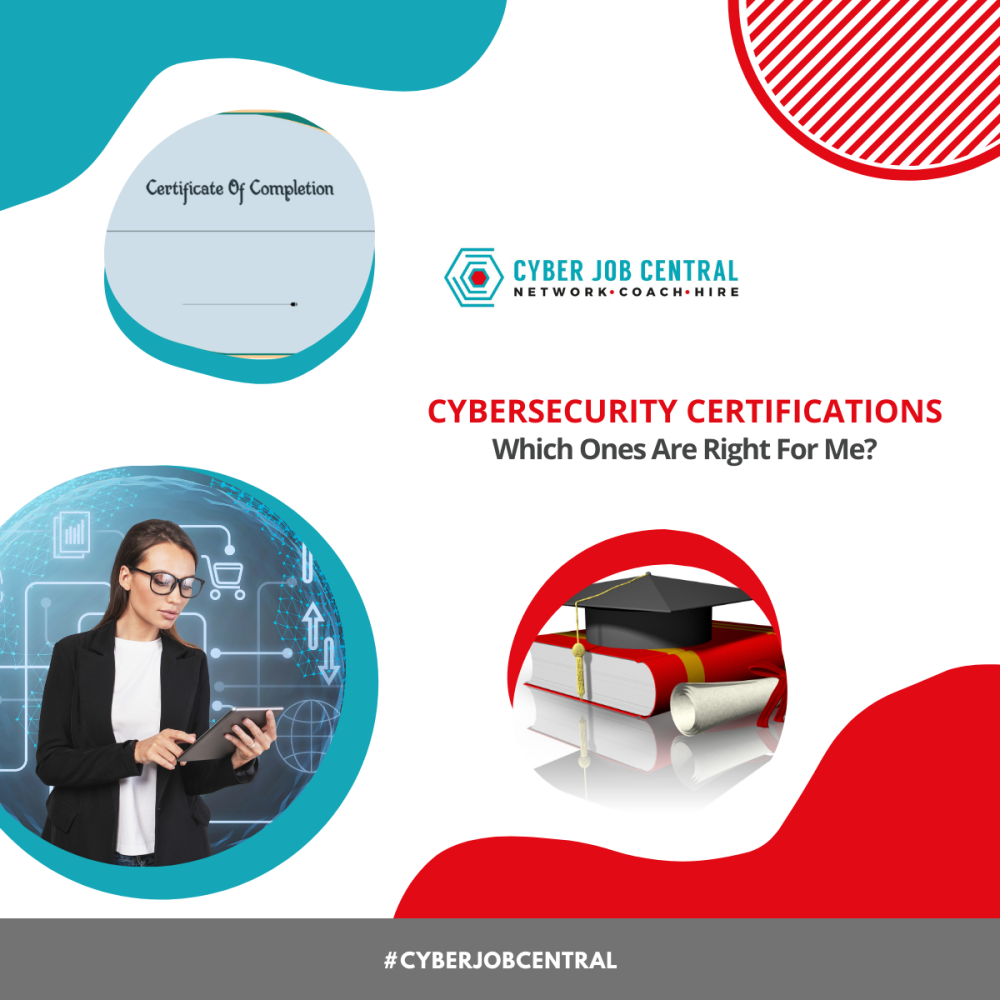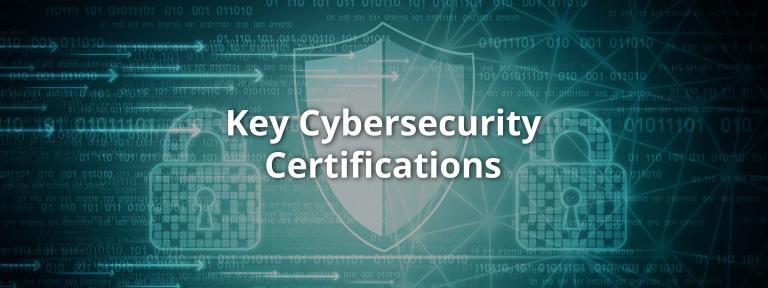Cybersecurity Certifications

Which ones are right for me?
Aside from being more cost-efficient than pursuing a university degree, certifications often require less time and fewer prerequisites than pursuing a traditional bachelor’s or master’s degree. Having a certification can go a long way to show employers your ability to excel at a role in the field. Determining which certifications are best for you depend largely on where you’re looking to go in the cybersecurity field, and where you are currently in your career.
Professional certifications are typically for professionals who are already working in cybersecurity or a similar field. These types of certifications keep cybersecurity professionals trained and up to date on the latest advancements in tools and software used against cyberattacks. One of the most obtained certifications is the CompTIA Security+. A basic entry-level requirement in the Department of Defense (DoD), the CompTIA Security+ certification is offered by the Computing Technology Industry Association (CompTIA) and shows employers that you have the basic skills required to work in cybersecurity at least at an entry-level. This is oftentimes recommended to be one of the first certifications you should earn to begin working in the cybersecurity field. Other good certifications to start your cybersecurity journey include Certified Ethical Hacker (CEH) and GIAC Security Essentials.
Academic certifications are built as short courses that introduce people to what it would be like to pursue a career in cybersecurity. These certs are great for people who work in a similar field and are looking to transition into cybersecurity. Unlike academic training provided when pursuing a bachelor’s or master’s degree in cybersecurity, academic certification programs take less time to complete ad typically don’t require traditional prerequisites that are needed to pursue a degree, such as completing the SAT or ACT. Some examples of academic certification programs to consider are Havard’s Cybersecurity: Managing Risk in the Information Age, and the University of Maryland’s Cybersecurity Certificate.
When considering certifications to pursue, it is important to review the requirements needed to obtain the certification you are interested in before you get started. Even some certifications that are considered foundational sometimes have prerequisites that you must acquire prior to beginning the program. Prerequisites can be in the form of other certifications, university coursework, or already having a number of years of experience under your belt before taking the certification course. Even if a certification does not have prerequisites, it may have recommendations regarding any coursework, certifications, and/or experience that would be beneficial to take beforehand in order to best excel at the program you are looking to embark on. Though recommendations are not required, it is good to look into them and assess how beneficial it would be for you to invest in completing that work prior to starting a particular certification.


